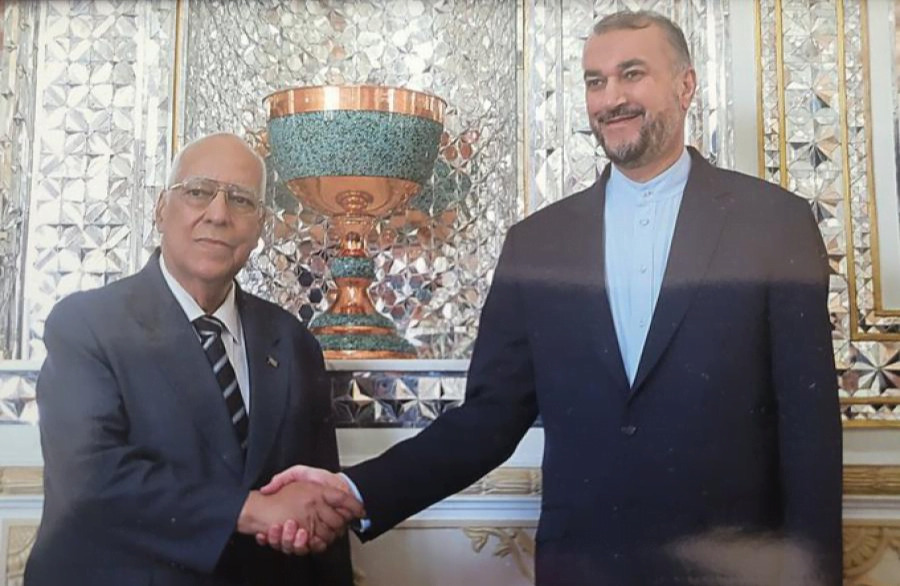
Tehran, May 15 (RHC)-- Iranian Foreign Minister Hossein Amir-Abdollahian has slammed Washington's broad and unilateral sanctions against Iran and Cuba, saying the two countries should make use of their experience to counter the bans.
Amir-Abdollahian made the remarks in a Saturday meeting with Cuban Deputy Prime Minister Ricardo Cabrisas Ruiz, who is in Tehran to take part in the 18th session of the Iran-Cuba joint economic committee. He described Cuba as a strategic partner for Iran and called for the expansion of bilateral cooperation in various fields.
The top Iranian diplomat said the joint economic committee would provide the two countries with an opportunity to discuss ways to enhance economic and trade relations and political cooperation.
Tehran and Havana also enjoy a proper level of cooperation in the sector of health and treatment, particularly the joint production of COVID-19 vaccine, Amir-Abdollahian said, emphasizing that the Iranian administration is determined to implement previous agreements and sign new contracts with Cuba.
Cabrisas, for his part, hailed Iran's constant support for Cuba in the face of the U.S. sanctions. The Cuban official said the economic committee would help the two countries boost strategic relations and added that tapping into bilateral economic capacities would serve common interests.
In an exclusive interview with Press TV last month, Cuban Ambassador to Tehran Alberto González Casals hailed his country's "best condition" of cooperation with Iran not only in the production of vaccines against COVID-19 but in biotechnology and many other fields.
"We are in the best conditions to cooperate with the Iranian counterpart not only for vaccines…but in many ways in biotechnology. Biotech is important for us. We have excellent scientific people like Iran has and we find proper ways to cooperate in both things," González said.
The U.S. has maintained a harsh economic, financial, and commercial embargo against Cuba for more than 60 years. Numerous resolutions by the United Nations General Assembly have indicated that the blockade is against international law. However, Washington has consistently voted against UN resolutions demanding an end to the sanctions against Cuba.
U.S. President Joe Biden vowed during his campaign to reverse some of his predecessor Donald Trump's Cuba measures that "have inflicted harm on the Cuban people" but has yet to make good on that pledge.
Iran has also been targeted by unilateral sanctions from the United States in contravention of international law. Back in May 2018, the U.S. began to unilaterally impose sanctions against Iran after the former left the 2015 Iran agreement, officially called the Joint Comprehensive Plan of Action (JCPOA).
The U.S., under former President Donald Trump, launched what it called a maximum pressure campaign against Iran at the time, targeting the Iranian nation with the “toughest ever” sanctions.
Back in July, Iran denounced the U.S. and some other Western countries for interfering in Cuba’s internal affairs, urging Washington to immediately end its unilateral sanctions against Havana and other nations.
Iran says the U.S. must immediately stop its interference in Cuba’s internal affairs and end its unilateral sanctions against the country. “For more than six decades, Cuba has been facing extensive sanctions [imposed on the country by] the United States, which have complicated the country’s economy and living conditions of its people, especially at the time of the coronavirus pandemic,” Saeed Khatibzadeh, spokesman of the Iranian Foreign Ministry, said.

